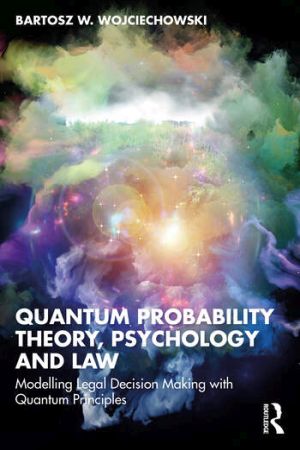
This book provides the first consideration of quantum principles in legal decision making. It shows how quantum probability theory can be applied to psychology and law to deepen our understanding of psychological and legal issues, suggesting a paradigm shift in the study of these areas.
Written as an introduction to quantum probability theory for non-physicists, the book offers an accessible summary of how psychology can be applied to quantum phenomena for human decision making. It introduces psychologists and lawyers to fresh conceptual frameworks, including classical probability theory, classical statistics, data mining and quantum theory. Wojciechowski shows how quantum theory and concepts can be transferred to psychological research models, and can help to resolve previously unexplained psychological phenomena, influence scientific views, undermine traditional foundations of the legal system and result in the development of new research directions. Studies conducted by the author are used to show how problems facing legal decision making can be addressed in a completely new light with the application of quantum probability theory.
This cutting-edge and innovative book will be of great interest to graduate students and researchers in the fields of forensic psychology and legal decision making, as well as legal professionals and legal scholars.